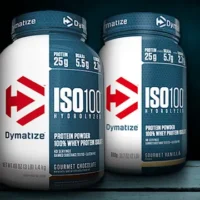Knowledge Baseyou're questions answered
Can you lose weight with OWYN?
When should I take ISO JYM?
What is clean whey protein powder?
Does clear whey protein have lactose?
Is REDCON1 MRE good for you?
How often should you take Mutant Mass?
Is ISOPEPT good for weight loss?
How to use GNC AMP Wheybolic Ripped?
How do Calcium Caseinate and Sodium Caseinate differ?
Can Optimum Gold Standard Whey upset your stomach?
How does MuscleTech Ripped work?
Is Gold Standard Whey good for muscle growth?
Can protein powder be heated?
Does Body Fortress whey protein go bad?
Can Soylent actually replace a meal?
Best Rated Protein
The content on this site has not been written, reviewed or endorsed by a medical professional. We assume no liability for the misuse of supplements and recommend you review the label of any product, as well as consulting with your health care professional.
We are a participant in the Amazon Services LLC Associates Program, an affiliate advertising program designed to provide a means for us to earn fees by linking to Amazon.com and affiliated sites.
We are a participant in the Amazon Services LLC Associates Program, an affiliate advertising program designed to provide a means for us to earn fees by linking to Amazon.com and affiliated sites.
© 2025 ProteinPowder.com





